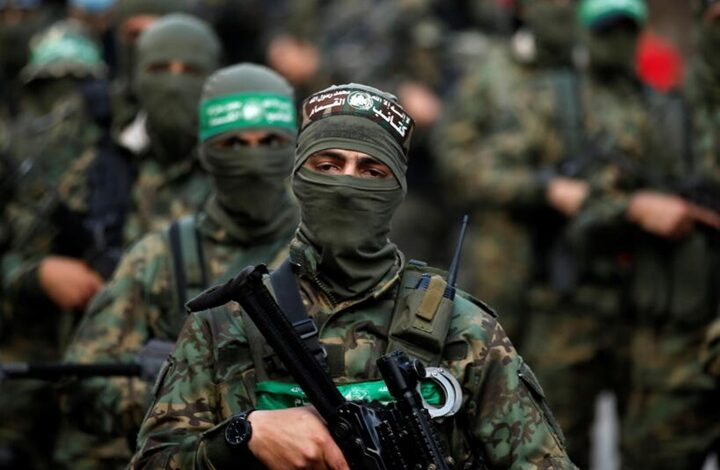Qatar, the Price of Running with the Hare and Hunting with the Hounds

Israel carried out what it describes as a “precise strike” targeted at Hamas senior leaders, claiming they were “directly responsible for the brutal October 7 massacre,” in Qatar’s capital, Doha, on Tuesday afternoon, September 9, 2025. Qatar has hosted Hamas’s political bureau since 2012 and played a key role in facilitating indirect negotiations between the group and Israel since the October 7 attacks in Israel. This singular act directly puts Qatar in the striking view of Israel’s attack, disregarding the strategic alliances Qatar has with the US and its role in negotiations between Israel and Hamas.
In the shadowy realm of global politics, Qatar’s delicate balancing act between strategic partnerships and complex relationships with various groups has put it in the crosshairs of regional tensions. Qatar must now learn to navigate the treacherous landscape of Middle Eastern politics with caution , where allegiances are tested and power dynamics shift like the sands of the desert.
Undoubtedly, Qatar’s delicate position in regional politics has been underscored by this attack, highlighting the complexities of its relationships with various groups and nations. As a mediator in regional conflicts, Qatar has walked a fine line between hosting the Al Udeid Air Base, a crucial US military installation, and maintaining ties with groups like Hamas, Taliban and the Muslim Brotherhood. This approach has drawn both praise and criticism, with some viewing Qatar’s actions as a calculated gamble to assert its influence in the region .
Qatar’s relationships with these groups are extremely complex. For instance, its facilitation of talks between the US and the Taliban demonstrates its ability to navigate complex geopolitical relationships. Similarly, its ties to Hamas have made it a significant player in Gaza’s humanitarian efforts, but also a target for Israel. Additionally, Qatar’s support for the Muslim Brotherhood has contributed to its reputation as a progressive and open nation, but also raised concerns about extremism.
Qatar’s diplomatic efforts extend beyond its relationships with these groups. The country has played a role in mediating conflicts in Lebanon, Sudan, Yemen, and Palestine, showcasing its commitment to regional stability. Its facilitation of US-Taliban talks is a notable example of its ability to navigate complex geopolitical relationships.
Despite its diplomatic efforts, Qatar’s relationships and policies have raised concerns about global extremism. Some critics argue that Qatar’s support for certain groups, such as the Muslim Brotherhood and Hamas, contributes to extremism in the region. Furthermore, Qatar has been accused of using its wealth to influence American policymakers and institutions through extensive lobbying efforts.
In fact, Qatar’s media outlet, Al Jazeera, has played a significant role in shaping narratives in the Middle East and around the world, providing alternative viewpoints to Western-dominated media. The country’s investments in sports, education, and culture have also helped to promote its global image and influence. For example, hosting international events like the FIFA World Cup and establishing universities and museums have contributed to Qatar’s reputation as a forward-looking nation. Additionally, Qatar’s ties to certain groups have raised concerns about its reputation as a progressive nation.
In view of these , Israel’s attack on Qatar has added a new layer of complexity to the region’s dynamics. The attack is believed to be a strategic move targeting Hamas leaders, disrupting their operations and testing regional boundaries. This unprecedented assault has significant implications for regional security and stability. Israel’s willingness to act unilaterally may strain its relationships with allies like the US, and the attack’s impact on regional stability and global diplomacy remains to be seen.
In response to the attack, Qatar will host an emergency Arab-Islamic summit on September 14-15 to discuss the repercussions of the Israeli attack. The summit aims to bring together Arab and Islamic leaders to determine a collective course of action. Qatar’s Prime Minister, Sheikh Mohammed bin Abdulrahman bin Jassim Al Thani, has described the Israeli strike as “international terrorism” and emphasized the need for a unified response.
The potential consequences of this attack are far-reaching. It may lead to escalating tensions, regional instability, and global concerns. The attack risks unraveling fragile alliances and ceasefire hopes, potentially trapping Gaza in endless war. World leaders have condemned the attack, citing concerns about regional stability and the need for diplomacy.Despite these complexities, Israel’s attack on Qatar suggests a willingness to take bold action , including the impact on regional stability and its relationships with other countries in the Gulf, as well as the ongoing Abraham Accords. The situation remains volatile, with potential far-reaching implications for the region .
Recently, in a notable gesture, Qatar offered a Boeing 747-8, valued at $400 million, to the US government for use as a presidential plane. This generous gift has sparked controversy, with some critics arguing it could be seen as a bribe or an attempt to influence US policy. However, it’s likely that Qatar’s motivations behind the gift are more nuanced.
The gift may be seen as a symbol of Qatar’s commitment to strengthening its relationship with the US. Over the years, Qatar has invested heavily in its military and economic ties with the US, hosting crucial US military installations like the Al Udeid Air Base. By offering the Boeing 747, Qatar may be seeking to further solidify its strategic partnership with the US.
In addition, Qatar’s investment in the US aviation industry could have long-term benefits for both countries. The gift may be seen as a strategic move to promote cooperation and mutual interests between Qatar and the US. By providing a state-of-the-art aircraft, Qatar is demonstrating its commitment to supporting the US government’s operations and potentially paving the way for future collaborations.
Qatar’s decision to gift a Boeing 747, valued at $400 million, to the US for potential use as Air Force One likely aims to strengthen its alliance with the US amid regional tensions. Although the aircraft requires substantial retrofitting, estimated at around $1 billion, to meet Air Force One’s security and operational standards, this gesture demonstrates Qatar’s commitment to being a reliable partner. The gift underscores Qatar’s strategic move to solidify its relationship with the US, showcasing its value as a supportive ally in a complex geopolitical landscape.
The Pentagon’s acceptance of the gift has raised questions about the potential implications of this deal. While the gift may be seen as a symbol of Qatar’s commitment to its relationship with the US, it also raises concerns about the potential for undue influence or conflicts of interest. As the deal moves forward, it will be important to consider the potential consequences and ensure that the gift is used in a way that benefits both countries .
Therefore, Israel’s recent attack on Qatar , who has gone out of its way to solidify its relationship with its allies, has sent shockwaves through the region, sparking widespread condemnation and raising concerns about regional stability. The attack which targeted Hamas leadership was a strategic move aimed at weakening Hamas’s capabilities and disrupting its role in ceasefire negotiations. The strike targeted Hamas leaders in Doha, who were meeting to discuss a US-backed ceasefire proposal, and was intended to deal a significant blow to the group’s leadership. By doing so, Israel aimed to undermine Hamas’s ability to negotiate a ceasefire and potentially pave the way for further military action. By hitting Qatar, a key US ally and mediator in Gaza ceasefire talks, Israel has demonstrated its willingness to act unilaterally, potentially straining relationships with allies like the US.
This bold move demonstrates Israel’s willingness to test regional boundaries and push the limits of its military power, raising concerns about its intentions and potential impact on regional stability. The attack on Qatar, a key US ally and mediator in Gaza ceasefire talks, has sparked widespread condemnation and raised questions about Israel’s commitment to diplomacy.
Furthermore, Qatar’s ties to Iran and hosting of Hamas made it a symbolic target in Israel’s strategy to weaken Iran’s “axis of resistance”. By attacking Qatar, Israel is sending a message to its regional adversaries that it will not hesitate to take bold action to protect its interests. This move has inflamed broader tensions, with Iran labeling it a “dangerous” escalation and raising fears of retaliatory strikes .
The attack has significant implications for regional security, potentially unraveling fragile alliances and ceasefire hopes. Qatar’s mediation exit could trap Gaza in endless war, while Gulf states rethink US partnerships, potentially cozying up to China or Russia. Economically, disrupted energy markets hit global consumers, with India facing price spikes. The international community, including the UN, France, and India, has condemned the attack, citing concerns about regional stability and the need for diplomacy .
The potential consequences of Israel’s attack on Qatar are far-reaching and multifaceted. One major concern is the risk of a multi-front conflict, as Israel’s ongoing attacks on Hezbollah in Lebanon and Houthis in Yemen already stretch its military. Hitting Qatar could further escalate tensions, potentially drawing in other regional players and leading to a wider conflict. This might trap Gaza in endless war, while Gulf states rethink US partnerships, potentially cozying up to China or Russia.
The attack may also lead to strained relationships between Israel and its allies. The US, in particular, has expressed concerns about the attack, with former President Donald Trump stating that it “does not advance Israel or America’s goals”. Other countries, including France, Germany, and the UK, have also condemned the attack, citing concerns about regional stability and the need for diplomacy. The international community’s reaction could lead to increased scrutiny of Israel’s actions, potentially damaging its relationships with key partners .
Furthermore, the attack could have significant economic implications. Disrupted energy markets and potential price spikes could affect global consumers, particularly in India, which relies heavily on Gulf oil. The strike has already led to increased tensions between Israel and its regional neighbors, potentially destabilizing the entire region. As a result, investors have snapped up traditional safe-haven assets, sending gold briefly to a new record high, while the price of oil jumped by around $1 to $67 a barrel .
Indeed, the Israeli attack on Hamas in Qatar has sent shockwaves through the region, sparking widespread condemnation and raising concerns about regional stability. For instance, the United Nations Secretary-General António Guterres condemned the attack as a “flagrant violation of the sovereignty and territorial integrity of Qatar,” and praised Qatar’s role in advancing peacemaking and conflict resolution. The Arab League, EU, France, Germany, Italy, and other countries have also denounced the attack, citing concerns about regional stability and the need for diplomacy.
The potential consequences of the attack are far-reaching, with implications for Qatar’s relationships with its allies, regional stability, and global energy markets. As the situation unfolds, Qatar finds itself at the center of a maelstrom, with the world watching with bated breath, aware that the next move could have far-reaching implications.
Post Views: 8




